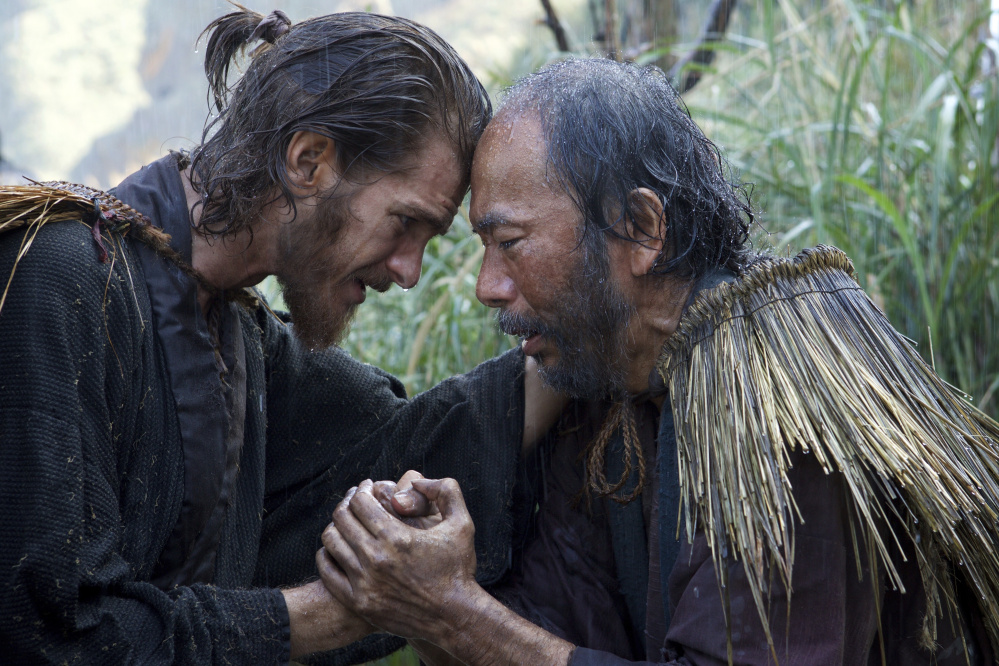Silence Gets Snubbed by Oscar Noms
February 1, 2017
Martin Scorsese has long been considered one of the masters of film. With hits such as Raging Bull and Goodfellas, Scorsese has reinvigorated his career with modern hits such as Hugo and The Wolf of Wall Street. Scorsese might have released his best film just yet with 2016’s Silence.
Based off a novel of the same name, Silence tells the story of Christian missionaries to Japan in the 1600s. Tracking down their old teacher, Rodrigues and Garuppe (played by Andrew Garfield and Adam Driver) are two Portuguese priests who set out from China to Japan. At this time in history, Christians are persecuted in Japan by the Buddhist government. This persecution comes in the form of torture and execution. This applies not only to the missionaries but also to the thousands of Japanese peasants that have been converted. The only escape from imprisonment, torture, or execution is renouncing the faith, which is not taken lightly.
Rodrigues and Garuppe know what they are getting into and are fully aware of the political situation in feudal Japan. Yet, they persist to go and find their old teacher, Father Ferraira, played by Liam Neeson. The priests arrive in Japan and instantly bring hope to a village full of secret Christians, who have to practice their faith in secret due to the Japanese Grand Inquisitor, whose task is to quell the spread of Christianity in Japan through any means necessary. Arriving in the Southern islands of Japan, the news of the Portuguese priests starts to spread as they bring religion to other small villages of secret Christians.
The Grand Inquisitor soon arrives in the villages that Rodrigues and Garuppe have started their work in. While not captured, Rodrigues and Garuppe witness innocent Japanese murdered for upholding their beliefs of Christianity brought to them by missionaries like themselves. As the story moves along, Rodrigues and Garuppe get separated with the hopes of finding Ferraira, yet also surviving the brutality of the Japanese Inquisition.
The narrative then focuses on Rodrigues, who is captured and has to put his faith to the test through all of the trials and tribulations. The Japanese authorities continuously urge Rodrigues to apostatize (renounce the faith) by stepping on an image of Christ).
Silence is the second 2016 film starring Andrew Garfield in historical Japan, the first being Mel Gibson’s World War II film Hacksaw Ridge. Hacksaw Ridge was nominated for several Oscars, including a Best Actor nomination for Garfield. Conversely, Silence was only nominated for Best Cinematography, which it well deserves. Furthermore, to me it seems a snub that Silence only received one nomination. Perhaps one of the most epic and powerful films of 2016, Silence is masterful storytelling at its finest. The production value alone is spectacular, with very intricately designed tools and sets that seem plucked out of the Edo era of Japan.
Shot entirely on location in Taiwan, Silence reminds us that green screen cannot replace real world backgrounds. Footage of the forests and beaches and mountains engross one in the setting completely. To complement the vistas, in lieu of a significant score, sounds of crashing waves, chirping insects, and wind rustling through the stress replaces a significant score. Yet this enhances the story rather than creating a distracting score.
From a story point of view, Silence may be viewed as a look at man and his relationship with religion. Not a Christian, most of my knowledge of the religion comes from movies like Ben-Hur and The Passion of the Christ. Both of these films, along with Silence, tests characters’ devotions to the faith and how they apply it in their given situation. Rodrigues consistently prays to the lord on the far side of the world, and hears nothing back but silence. The latter half of the film puts Rodrigues’ will and commitment to the faith to the test with ever increasing odds. The ending leaves the viewer wondering exactly why religion is instilled in society, and if the functional purpose is worth the sacrifice. Good film makes one ponder about their own society, and Silence does just that.
Scorsese masterfully portrays the inquisition from the Japanese side as well, and rather than demonizing the murders, the motives and reasoning of the Japanese is fleshed out so the political implications of the spread of Christianity is fully understood.
Silence is a powerful viewing experience, and might be one of the best examinations of faith I have ever seen. This is not an enjoyable film in the sense that Rogue One or The Avengers is, but is an intense and engaging experience that leaves one pondering contemporary life. While it was snubbed at the Oscars, rewards do not validate or invalidate excellent film making, which Silence certainly is.

